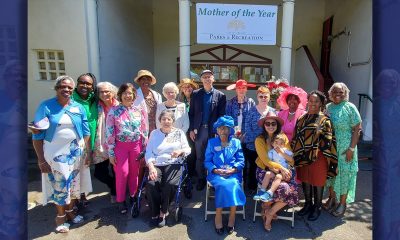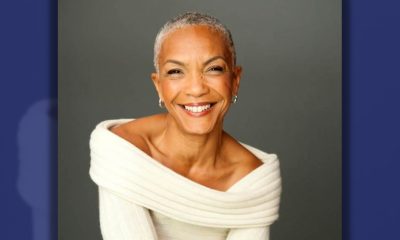Antonio Ray Harvey
Our Mistrust of Medicine: Black Health Group Hosts Critical Conversation
The California Black Health Network (CBHN) hosted a conversation focused on the mistrust of healthcare providers among Black Americans at Black-owned Drip Espresso, a popular coffee shop in Sacramento and a community partner of the organization. The CBHN’s Health4Life initiative discussion, “Health Care in Your Hands: Taking the Power to the People,” drew a full house of attendees.
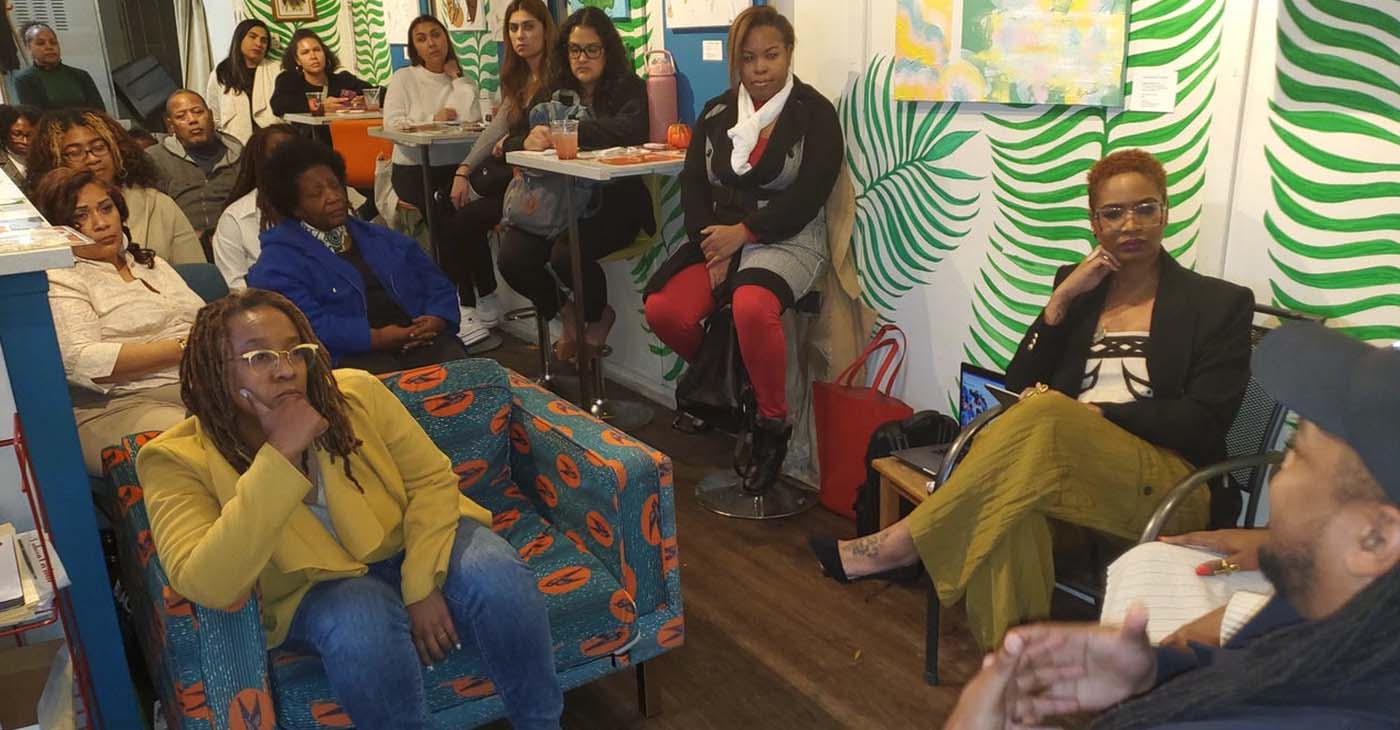
By Antonio Ray Harvey
California Black Media
The California Black Health Network (CBHN) hosted a conversation focused on the mistrust of healthcare providers among Black Americans at Black-owned Drip Espresso, a popular coffee shop in Sacramento and a community partner of the organization.
The CBHN’s Health4Life initiative discussion, “Health Care in Your Hands: Taking the Power to the People,” drew a full house of attendees.
“Tonight’s event is one of many efforts to connect with the community and educate all of us about how to get better results and have better interactions with the health care system,” said the event’s moderator Amber Bolden, director of communications and development at Voice Media Ventures, a Black-owned-and-operated firm in Riverside that specializes in community outreach and engagement.
“In short: It was to arm the community with tools to have more positive interactions with the health care system,” Bolden continued.
The first speaker, Dr. Italo Brown, is a board-certified emergency room physician, health equity advocate and an assistant professor in Emergency Medicine at Stanford University School of Medicine.
He shared his personal journey as a medical professional, emphasizing that there is no “perfect strategy” in the pursuit of the best health care available.
“What I encourage people to do is be open enough with your health journey to exchange what’s working with other people,” Brown said. “You have to build a community in your health practice. Information sharing is highly beneficial.”
The second speaker was Mo’Nique Campbell, a Black trans woman and health educator who is a Trans Service Program manager at San Francisco Community Health Center. Her work centers on medical and mental healthcare.
Campbell encourages patients to learn as much as they can about their practitioner and develop a long-lasting relationship with healthcare providers.
“It’s not an interview where I am giving you, like, a simple job. This is my life. My body is my fortress and I’m leaving you responsible for it,” Campbell said.
There is a well-documented history of the medical establishment mistreating and misdiagnosing Black patients and approaching their care with deep racial biases.
There is also a troubling history of conducting experiments on enslaved people, enforcing sterilizations of Black women and the infamous Tuskegee syphilis study that denied treatment to about 400 Black men for decades as doctors monitored the progression of the disease in their bodies.
At CBHN’s community session, the case of Henrietta Lacks was discussed. Lacks was one of a diverse group of patients who unknowingly donated cells at Johns Hopkins University in 1951. The donation of Henrietta Lacks’ cells began what was the first, and, for many years, the only human cell line able to reproduce indefinitely.
Her cells, known as ‘HeLa cells’ for Henrietta Lacks, remain a remarkably durable and prolific line of cells used in research around the world. Lacks’ story impacted medical science and the field of bioethics.
In January 2022, Dr. Carolyn Roberts, a professor at Yale University, raised the issue of the medical establishment’s troubled historical relationship with African Americans during her testimony at the California Task Force to Study and Develop Reparation Proposals for African Americans.
“It is important for us to recognize that many critical issues that we are wrestling with today have long, old and deep historical roots,” Roberts said. “These include racial bias and disparate medical treatment, race- based medicine, and medical exploitation.”
The Health4Life program is a “Healthy Black People” campaign that empowers all Black Californians with “How Do I…” information and resources needed to help them navigate the system, advocate for friends, family, and individuals, and act when faced with discrimination.
During the conversation, Bolden referenced the California Health Care Foundation (CHCF)’s “Listening to Black California” study.
The CHCF compiled the report after listening to Black Californians’ experiences with racism and healthcare.
Considered as one of the most comprehensive studies focused on the healthcare experiences of Black Californians to date, the study included a survey of 3,325 Black Californian adults, in-depth interviews with 100 Black Californians, and 18 statewide focus groups.
“It is one of, if not, the largest study exploring the experiences of Black Californians in the state’s health care system,” Bolden told attendees.
According to the report by CHCF, Black Californians are highly intentional in their pursuit of physical and mental health. Most Black Californians report focusing on their mental health (79%); getting appropriate screenings or preventive care (77%); and tracking health indicators, such as blood pressure and cholesterol (71%).
Antonio Ray Harvey
Cal African American Chamber of Commerce Holds Annual Gwen Moore Legislative Reception
The California African American Chamber of Commerce partnered with the California African American Action Fund to host its annual “Honorable Gwen Moore California Legislative Reception.” The event took place on May 7 at the Sutter Club in downtown Sacramento. Distinguished guests included business leaders, state officials, and both former and current lawmakers. Notably, members of the California Legislative Black Caucus (CLBC), attended the event.
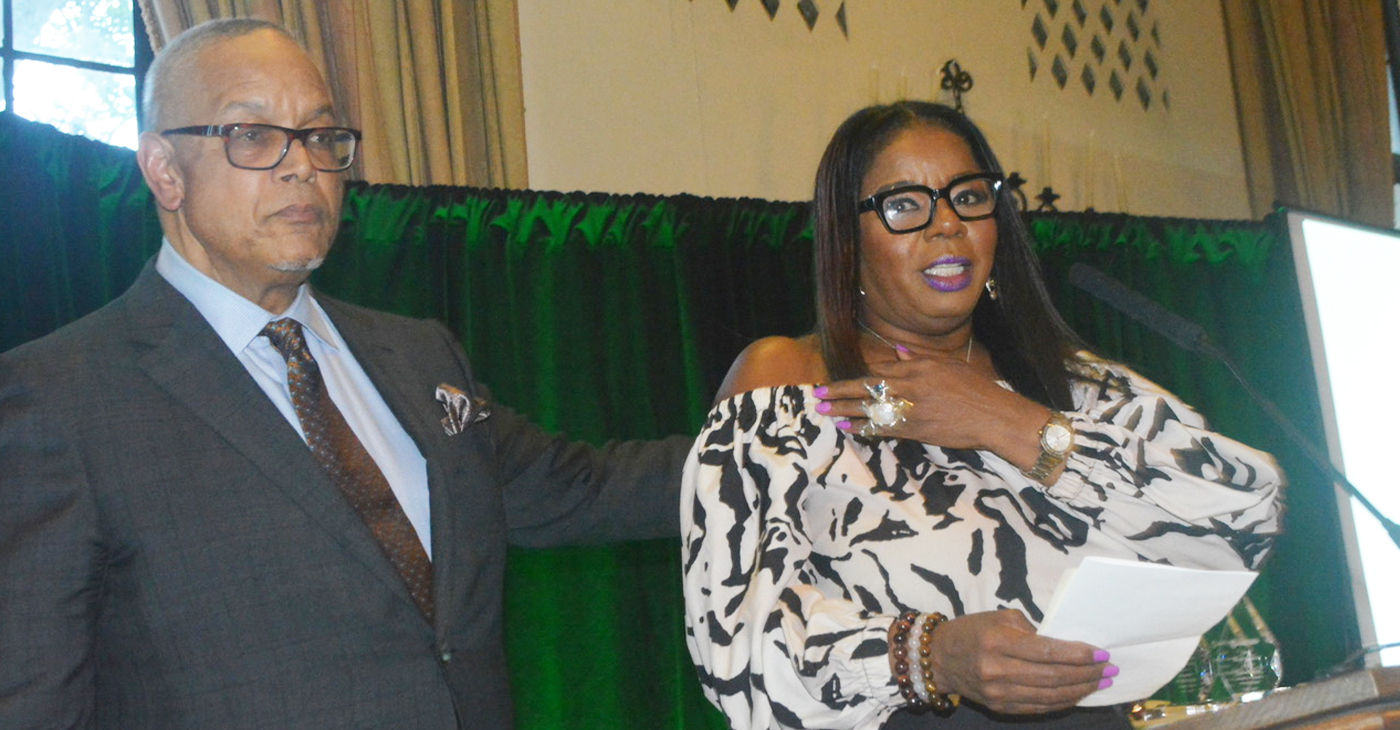
By Antonio Ray Harvey, California Black Media
The California African American Chamber of Commerce partnered with the California African American Action Fund to host its annual “Honorable Gwen Moore California Legislative Reception.” The event took place on May 7 at the Sutter Club in downtown Sacramento.
Distinguished guests included business leaders, state officials, and both former and current lawmakers. Notably, members of the California Legislative Black Caucus (CLBC), attended the event. Former Assembly Speaker and San Francisco Mayor Willie Brown, 90, was the keynote speaker. Former state Sen. Roderick Wright and CAACC Executive Director Timothy Alan Simon served as emcees.
“The California African American Chamber of Commerce and the California African American Action Fund represent the African American economy of the fourth largest economy of the world,” Simon said during the introduction of the event. “Therefore, tonight let’s have some fun. We are going to learn how to acquire more power, more financial funding, and more access. We’re opening up those doors to you.”
During the reception, an award ceremony honored individuals for their achievements, innovative ideas, leadership, business acumen, and political contributions.
The CAACC Media and Communications Award was presented to Civil Rights Activist Danny Bakewell Jr., President of the Bakewell Company and Executive Editor of the Los Angeles Sentinel.
The Gwen Moore Legislative Impact Award was presented to Assemblymember Lori Wilson (D-Suisun City), Chair of the CLBC. The Legislator of the Year honor went to Assemblymember Corey Jackson (D-Moreno Valley).
“This is an absolute honor. Especially, with my knowledge and familiarity with Assemblymember Moore’s work,” Wilson said. “It’s just a reminder, honor, and privilege of this space I get to be in. This award holds profound significance for me and those who dedicated their lives to advancing equity, justice, and opportunities for all.”
Cathy Adams, President and CEO of Oakland African American Chamber of Commerce was presented with the Aubry Stone Outstanding Business Award. The Trailblazer Award was presented to the late Linda Crayton, former San Francisco City Commissioner.
Crayton served on the Airport Commission for the City and County of San Francisco from 1996 to 2020.
“She clearly served for almost 25 years, and she was totally sensitive to the need and careful implementation within the framework of all the rules that had been established,” Brown said of Crayton. She was a difference for many.”
Other leaders honored were John Reynolds, California Public Utilities Commission (recipient of the Distinguished Service Award); Hon. Heather Hutt, Councilmember for the City of Los Angeles, representing Council District 10, (Distinguished Service in the African American Community Award); and Thurman White, Senior Advisor ESO Ventures (Distinguished Recognition Award).
Rounding out the special guests and awardees list were Sen. Steven Bradford (D-Inglewood), CLBC Vice Chair, Dennis Thurston, Supplier Diversity Program Manager for Southern California Edison; Angela Gibson-Shaw, President of Greater Los Angeles African American Chamber of Commerce; and Tommy Ross, Pinnacle Strategic Group.
Toks Omishakin, Secretary of the California State Transportation Agency (CALSTA) also attended the two-hour event.
“That’s the nature of how we need to work in the world of politics and, how we need to exercise authority and privilege.”
Antonio Ray Harvey
Senate Committee Advances Local News Media Bill Amid Concerns, Pushback
With a 4-1 vote on May 8, the Senate Committee on Revenue and Taxation advanced Senate Bill (SB) 1327, a proposed law that would impose a “mitigation fee” on major digital technology companies. If the bill passes, fees collected would provide $500 million in employment tax credits to news organizations across the state.
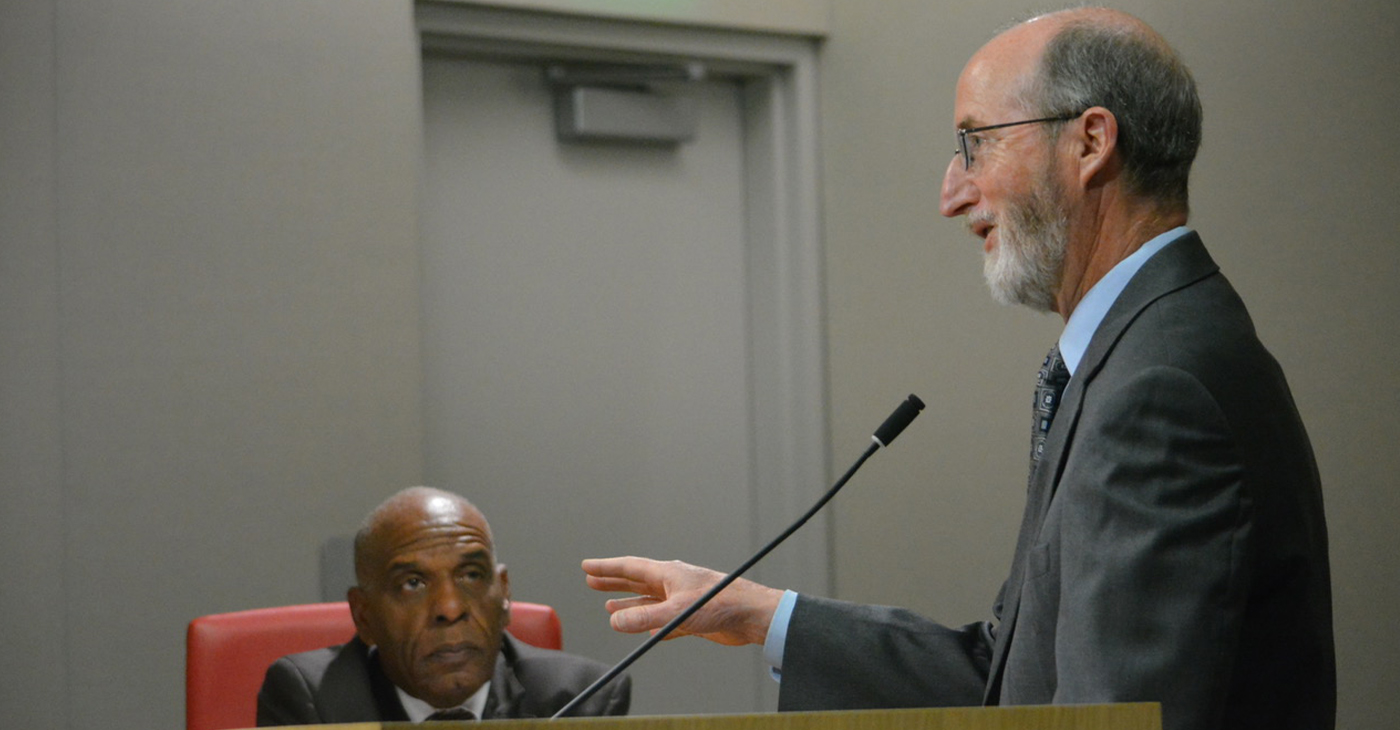
By Antonio Ray Harvey, California Black Media
With a 4-1 vote on May 8, the Senate Committee on Revenue and Taxation advanced Senate Bill (SB) 1327, a proposed law that would impose a “mitigation fee” on major digital technology companies. If the bill passes, fees collected would provide $500 million in employment tax credits to news organizations across the state.
SB 1327 is currently under review by the Senate Appropriations Committee.
Sen. Steven Glazer (D-Contra Costa), the chairperson of the Revenue and Taxation committee and author of SB 1327, believes the bill would help bolster journalistic integrity and enable media outlets to hold the government accountable through incisive and balanced reporting.
“I have voted on more than 10,000 bills. I can’t think of a more important legislative measure that I am working on than this measure,” Glazer said of SB 1327.. It’s about preserving and protecting our democracy.”
Senators Glazer, Catherine Blakespear (D-Encinitas), Bill Dodd (D-Napa), and Nancy Skinner (D-Berkeley) voted for SB 1327 while Brian Dahle (R-Lassen County) voted against it. California Legislative Black Caucus (CLBC) vice chair Sen. Steven Bradford (D-Inglewood) abstained from voting.
Bradford expressed reservations about the bill, while also acknowledging the author’s efforts to protect local journalism.
“My biggest concern is ethnic media,” said Bradford. “Even though it says that they will be considered here at the end of the day, as always, they are usually left out and still need more assistance.”
SB 1327 would impose fees on digital technology companies with a minimum of $2.5 billion in annual advertising revenue. The money collected would be allocated to publishers of numerous community and ethnic media outlets.
During a news conference on April 29, Glazer said that SB 1327 aims to “ensure that newsrooms keep our citizens informed and democracy accountable to the people.”
“The mitigations proposed in this bill would largely be used to finance an employers’ hiring and retention tax credit available to all qualifying news organizations from any government interference or involvement in their content,” Glazer explained at the State Capitol Swing Space Annex.
Local media outlets employing 10 or more full-time journalists would receive a basic credit equivalent to 25% of wages paid while media outlets with fewer than 10 employees with an expectation of expanding their workforce would receive a credit equal to 35% of wages paid. A reporter earning a yearly salary of $60,000 would generate 24,000 in tax credits, according to Glazer.
SB 1327 would also allocate $25 million annually to non-profit local news organizations that would not benefit from tax credits.
Paul Cobb, the publisher of the Oakland Post, a Black media outlet that has less than 10 employees, acknowledged his agreement with some aspects of SB 1327, but expressed a desire to further examine the details of the legislation. The Oakland Post is the largest Black publication in Northern California.
“SB 1327 presents an opportunity for the Governor to continue the recent California Legislative reparations policy initiatives by issuing an executive order directing all government agencies to provide Public Notice placements to qualified ethnic local media,” Cobb said.
Antonio Ray Harvey
Working Group: More Entry-Level Homes Could Help Solve Housing Crisis
The Community Housing Working Group hosted a briefing on April 23 at Cafeteria 15L in Sacramento. Discussions focused on how the housing crisis in California affects Black and Brown communities and explored ways to provide low-income families and individuals with affordable housing.
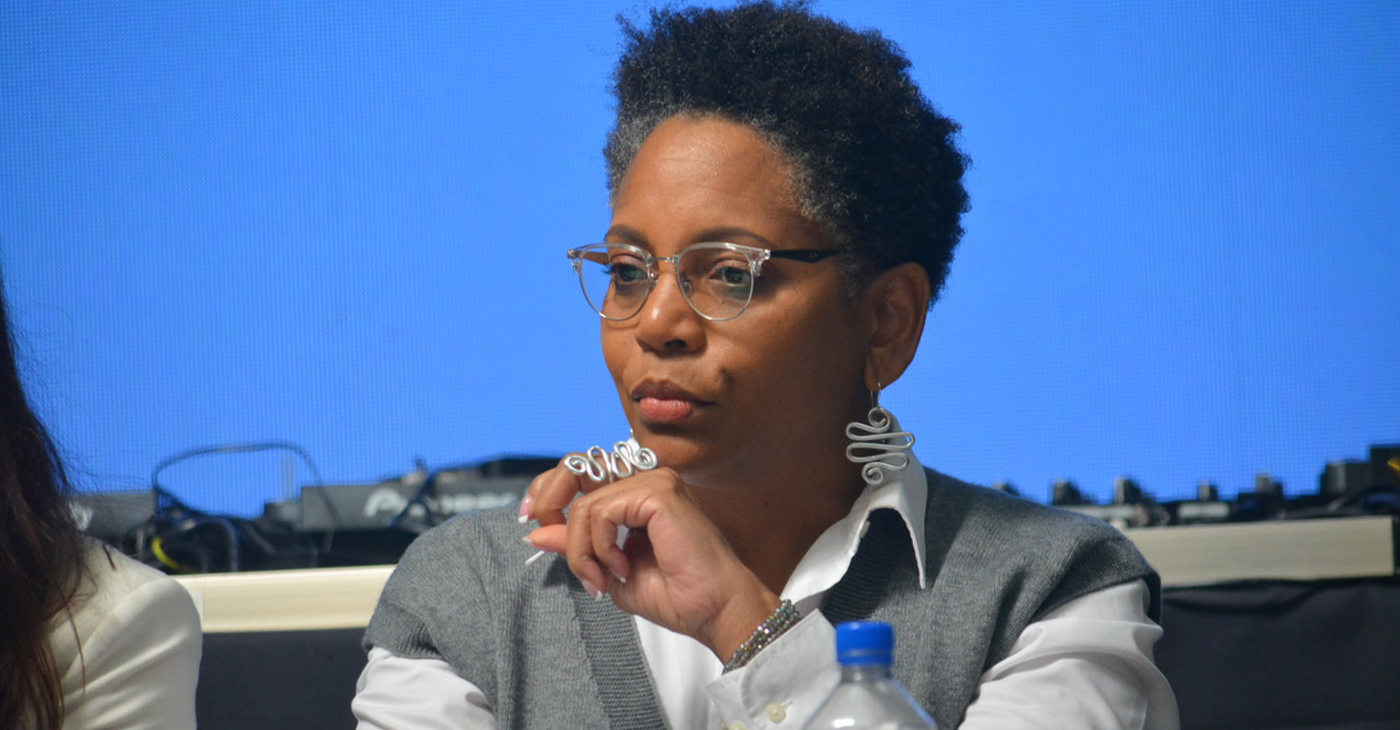
By Antonio Ray Harvey, California Black Media
The Community Housing Working Group hosted a briefing on April 23 at Cafeteria 15L in Sacramento. Discussions focused on how the housing crisis in California affects Black and Brown communities and explored ways to provide low-income families and individuals with affordable housing.
Tia Boatman Patterson, CEO and President of the California Communities Reinvestment Corporation, said “entry-level housing” is not available as it was in the past, adding that affordable units were a major point of entry into homeownership for many families in the Black community.
“My mother bought her first house when I was in junior high. It was an 850-square foot, two-bedroom and one-bathroom house in 1978. That house cost $30,000,” Boatman-Patterson said.
“A woman working part-time at JCPenney was able to afford that house. We don’t build these types of housing now. We do not build entry-level homeownership,” she added.
The Community Housing Working Group is a collection of diverse community organizations from across California working together to address housing challenges in their communities. The organization believes that solving the affordable housing crisis will require creating enough smaller, lower-cost, multi-family homes located near jobs, transit, and good schools.
The briefing included a panel discussion titled, “Exclusionary Zoning: A Look Back and a Path Forward.” Boatman-Patterson participated in that session along with Henry “Hank” Levy, Treasurer-Tax Collector for Alameda County, and Noerena Limón, consultant, Unidos U.S., and Board Member of California Housing Finance Agency.
Boatman-Patterson, a former Associate Director for Housing, Treasury and Commerce in the Office of Management and Budget for the Biden Administration, started her presentation by highlighting how exclusionary single-family zoning is contributing to continued segregation of California communities.
She said that single-family zoning originated in the Bay Area city of Berkeley in 1916.
“By creating single-family zoning and having fenced-off communities, you were able to exclude the ‘others,’” Boatman-Patterson said. “It really was a method to exclude — what they called ‘economic segregation’ — but that was a guise for racial segregation. Single-family zoning, along with redlining, became a systemic approach to exclude based on affordability.”
Title VIII of the federal Civil Rights Act of 1968 — commonly known as the Fair Housing Act of 1968 – is the U.S. federal legislation that protects individuals and families from discrimination in the sale, rental, and financing of housing. It was passed to open the doors to affordable housing.
In 1968, 65.9% of White families were homeowners, a rate that was 25% higher than the 41.1% of Black families that owned their homes, according to National Low-Income Housing Coalition. Today, those figures have hardly changed in the Black community, although White homeownership has increased five percentage points to 71.1%.
Boatman Patterson said the rate has not changed in Black and Brown communities because financing for affordable entry-level homes is almost nonexistent. The homeownership disparities contribute to the disturbing racial wealth gap in the nation, according to the National Low-Income Housing Coalition’s October 2018 report.
“We really must align the financing with the actual building of units, which we haven’t necessarily done. Because of this misalignment, I think we continue to see problems,” Boatman-Patterson said.
-

 City Government2 weeks ago
City Government2 weeks agoCourt Throws Out Law That Allowed Californians to Build Duplexes, Triplexes and RDUs on Their Properties
-

 Activism3 weeks ago
Activism3 weeks agoOakland Post: Week of April 24 – 30, 2024
-

 Community4 weeks ago
Community4 weeks agoOakland WNBA Player to be Inducted Into Hall of Fame
-

 Community4 weeks ago
Community4 weeks agoRichmond Nonprofit Helps Ex-Felons Get Back on Their Feet
-

 Community4 weeks ago
Community4 weeks agoRPAL to Rename Technology Center for Retired Police Captain Arthur Lee Johnson
-

 Alameda County2 weeks ago
Alameda County2 weeks agoAn Oakland Homeless Shelter Is Showing How a Housing and Healthcare First Approach Can Work: Part 1
-

 Business4 weeks ago
Business4 weeks agoBlack Business Summit Focuses on Equity, Access and Data
-

 Bay Area4 weeks ago
Bay Area4 weeks agoMAYOR BREED ANNOUNCES $53 MILLION FEDERAL GRANT FOR SAN FRANCISCO’S HOMELESS PROGRAMS

